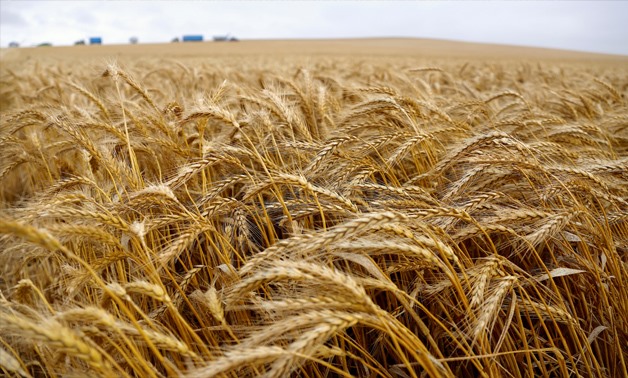India: Fewer arrivals in markets hit wheat procurement

The Union government’s procurement of wheat has slowed due to lower arrival in markets (mandis) as farmers battling higher moisture content in grains due to spells of recent rains in states such as Punjab and Haryana have delayed harvesting, official data show.
The government has set a conservative wheat procurement target of 30-31 million tonnes despite record output estimate of 112 million tonne. The target is about 19% higher than the actual procurement of 26.2 million tonne last year.
Sufficient procurement is critical this year to help the world’s second biggest wheat producer replenish depleted stocks, which, at nearly 10 million tonnes currently, have hit a 16-year-low. Plentiful state-owned stocks will also bring down wheat prices, which have been elevated, lifting overall food inflation.
As on date, the government has procured about 7.3 million tonnes of the staple, compared to about 11.5 million tonnes during the corresponding period last year, according to data from the Central Food Grains Procurement Portal.
“All-India arrivals of wheat are down nearly 38% year-on-year to 9 million tonnes as higher moisture content has delayed harvesting,” said Abhishek Agrawal of Comtrade.
The government is quite sure that it will meet its wheat procurement target as arrivals are increasing, a food ministry official said, requesting anonymity.
The dip in government stocks follows the government’s sale of nearly 10 million tonnes since June last year to bulk buyers, such as flour mills, to curb domestic prices.
Wheat inflation in the world’s second-largest grower of the crop climbed to record highs in the aftermath of the Ukraine war but has moderated to about 5% on an annual basis due to aggressive supply-side measures undertaken by the government.
Despite lower output due to extreme weather over two straight previous seasons, the government has avoided wheat imports, which currently attract a 40% duty.
Earlier this month, the food ministry said that it intended to procure 30-32 million tonnes for publicly-held stocks. “The total requirement for food security purposes and all welfare programmes is about 23 million tonnes,” an official said. Procurement refers to the government’s purchases of food grains from farmers at minimum support prices.
The government missed its procurement targets for the last two years. In the 2023-24 crop year,the Food Corporation of India was able to purchase only 26.2 million tonnes against a target of 34.15 million tonnes. In the 2022-23 season, the government’s purchases of wheat dropped to 18.8 million tonnes against a targeted 44.4 metric tonnes.
In the last two years, farmers preferred to sell to private traders because prices continued to be above minimum support prices despite a ban on wheat exports.
The government has been battling high food inflation, prompting it to ban the export of rice, wheat and onion to boost local supplies. The Union government has ramped up output of basic staples under its subsidized Bharat brand to reach consumers directly in an attempt to control prices, especially of cereals.
India’s retail inflation cooled to 10-month low at 4.85% in March, led by a fall in fuel. However, food inflation has remained sticky. Cereal inflation rose by 8.4%, compared to 7.6% in February. In 2022 and 2023, extreme weather and heat waves cut wheat output between 2.8-3%, fuelling a price spiral. According to data from the department of consumer affairs, all-India average wheat flour, or atta, prices in the retail market were at ₹35.9 per kg, rising an annual 3.7% from a year ago.
Tags: export, rice, estimate, wheat, India, stocks, procurement, output, markets, minimum support prices
Write to us
Our manager will contact you soon











